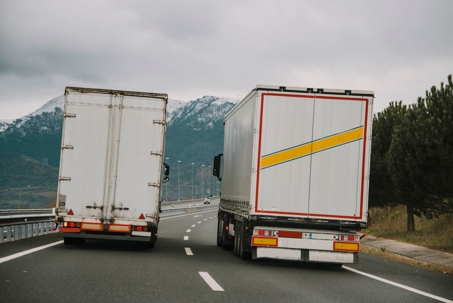You’re driving down a two-lane highway when you see a truck pull out of its lane. It slowly moves to pass the truck it was following, but can’t get enough speed to pull ahead and finish merging. Now you’re looking at a traffic jam as all the cars around you slow down since both trucks are going under the speed limit. This is called an elephant race. To understand why these annoying situations happen, we need to look at a truck’s speed and how they respond to inclines.
Speed Difference
Most large trucks are equipped with a device called a “governor.” This is a system that physically prevents a vehicle from going above a maximum speed, usually 60 MPH.
The first problem is that each shipping company has a slightly different max speed on their governors. If a blue truck has a max speed of 60 MPH and a red truck has a max speed of 63 MPH, the red truck either needs to slow down or pass the slower truck.
Slowing down is difficult because trucks rely on momentum. Even if a truck slows down by 5 MPH, it takes a lot of time and fuel for that truck to get back up to speed, especially if it’s fully loaded.
The faster trucker often feels forced to get out of their lane to maintain speed, but this causes an elephant race. At a difference of 3-5 MPH, it might take several minutes before the faster driver has both passed the slower truck and moved far enough ahead to get back in their lane.
Incline Shifts
Elephant races can also happen because of inclines and high-grade slopes. Because a truck’s weight and engine capacity vary wildly, two similar-looking trucks can struggle to take on the same hill.
Often, the heavier truck will slow down as its engine labors against the stress of its weight and the incline. That means nearby truckers need to make a quick decision as to whether they’ll slow down or cause an elephant race. In either case, the faster trucker is just as frustrated as those around them. After all, the more a truck driver changes lanes, the more likely they are to cause a serious wreck.
If you or someone you love suffered severe injuries or even wrongful death in a trucking accident, we can help you get serious. If you’d like an experienced Gulfport auto accident attorney from Gulf South Law Firm to evaluate your case, please send us an email or call (228) 231-3989.

